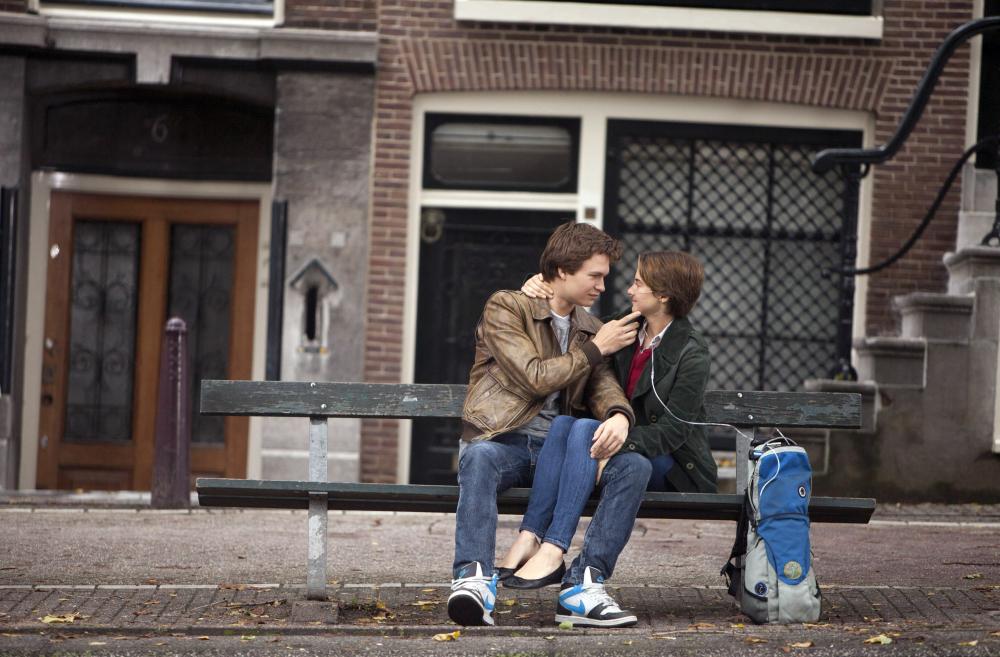

Little by little he's able to bend circumstances to his will, and then to join forces with the most illustrious of the human warriors, a woman named Rita Vrataski, who's written thinly but played to the Valkyrie hilt by Emily Blunt. Only gradually does the reluctant warrior come to understand the bizarre terms of his existence-he has acquired the ability to reset time-and the chance it may give him to warn his superiors of the carnage that's certain to come. The combat that keeps killing Cage has echoes of World War II and, for that matter, "Saving Private Ryan." We've lost France and Germany to the alien hordes, so our last resort is a chaotic landing on a French beach. The comedy, or more properly the odd levity, doesn't kick in for a while. They might also have called it "Groundhog Day 2," but that wouldn't have conveyed the film's martial frenzy, its fascinating intricacies or the special delights of its borderline-comic tone. They could have called it "Die Another Day," but that title was taken. Cruise, because he's so lively in the role-Cage finds himself caught in a time loop that has him fighting and dying, fighting and dying, over and over again. Much, much worse still-though better for Mr. Worse still, he's killed on the first day of combat. William Cage, a desk jockey determined to remain one, finds himself plunged into a suicide mission.

At a time in the future when our poor planet is being pummeled by seemingly invincible-and extremely unpleasant-alien invaders, Tom Cruise's Maj. Never has a megabudget sci-fi spectacular been hung on a loopier premise, but "Edge of Tomorrow" is great, eccentric fun until its intentional repetitions get to be, well, repetitive. Watch a clip from the film "Edge of Tomorrow." Starring Tom Cruise, Emily Blunt, and Bill Paxton. This young actress is the real, heart-piercing thing.

And when the time comes for suffering, the pain of watching her is mingled with the pleasure of a performance that transcends contrivance. What leavens the heaviness of the theme is the heroine's wry wit, which Ms. That's putting her achievement too simply, of course. Others in the cast work at being winning she wins by seeming to be herself. She has the precious gift of simplicity, whether she's observing the people around her with a cool eye or filling the screen with a warmth that seems to come naturally.
Wath the fault in our stars full movie movie#
Woodley's movie at almost every moment she's on camera. "The Fault in Our Stars" is Hazel's story, and it is Ms. Hazel rises fiercely to another confrontation with a novelist, played lugubriously by Willem Dafoe, who proves to be anything but the wise man she'd been seeking. Woodley gave another endearing performance opposite Miles Teller.) Laura Dern, as Hazel's mother, spends most of her screen time exuding brittle jauntiness, but her defenses crumble in a mother-daughter confrontation about what happens if, or when, Hazel dies. (They wrote last year's "The Spectacular Now," a romantic comedy, with much more of a spontaneous, independent spirit, in which Ms. Still, moments of grace punctuate the film, which was adapted by Scott Neustadter and Michael H. Elgort is encouraged, or indulged, in posturings that make the hero an annoying presence and a baffling one, a visitant from some weird preppie culture. He eventually reveals his vulnerability, and movingly so, but before that Mr. In the movie, the arc of Gus's character is drawn with a brush so broad that it smudges. In John Green's phenomenally successful young-adult novel, Gus is partial to big words and fancy locutions, but they're a cover, in a nuanced character, for the existential terror that his cancer will come back. Elgort's fault, but neither is the hero's windiness. Cancer-free after losing one leg, Gus is insistently, sometimes insufferably, verbal, and, as played by Ansel Elgort, almost preposterously handsome. The boy who becomes the love of her life, Augustus Waters, has a penchant for expansive talk. (In a fleetingly affecting detail, Hazel, checking herself out in a mirror before her first visit to the support group, adjusts the cannula like a fashion accessory.)

"It's a side effect of dying," she says, "which is what's happening to me." Living with cancer-ravaged lungs, she is tethered to an oxygen bottle wherever she goes and wears a nasal cannula, a little two-pronged piece of plastic that delivers the oxygen to her nostrils. She's depressed, she tells us in a preface, but not because depression is, in the conventional wisdom, a side effect of cancer.


 0 kommentar(er)
0 kommentar(er)
